
Congratulations on surviving 2018! Here, we will recount some of the most inspiring and noteworthy events of the year and review some of our own humble contributions to the worldwide anarchist movement over the past twelve months.
For audio reflections on 2018, you can listen to a conversation between one CrimethInc. operative and the anarchist news project It’s Going Down.

2018 came on the heels of a very big year. 2017 was a dramatic moment in US history. It was unclear how far the far right would be able to advance, and it was up to us to stop them. Anarchists and others succeeded in showing that they would not be able to consolidate society behind their program.
The struggles of 2017 continued in 2018, but with all sides bogged down in a sort of stalemate. Trump’s support base held—a solid quarter of the US population appears hopelessly committed to licking the boots of whichever autocrat promises to harm others in their name. Yet Trump was not able to consolidate his grasp on power; on the contrary, his administration has only fractured further and further, appearing increasingly incompetent. The extreme center—the Democrats who fetishize the rule of law and the ordinary functioning of the system—also failed to consolidate opposition to Trump under their banner, despite the election in November, which usually gives proponents of party politics an advantage when it comes to browbeating activists into line with their program. Within the halls of power, they have not gained enough ground to unseat Trump—only enough to hamstring him. Likewise, anti-authoritarian social movements have survived, but lost some of the urgency and broad participation that characterized them in 2017.
The ensuing impasse presents a three-way contest between those who want to be even more racist and authoritarian than the existing system allows, those who want the current system to run properly at any cost, and those who want to dismantle it in favor of more egalitarian structures based in self-determination. In 2019, we will have to become more conversant in this kind of three-way trialectic.
Other parts of the world, like Brazil and Italy, are just now arriving at their 2017. The rise of the far right has plateaued in the US, but on a global level, we have yet to see how far it can go. Internationally, 2018 was a year of heterogeneous revolts; from the uprising in Nicaragua to the yellow vest movement in France, we saw groups from anarchists to the far right attempting to position themselves as the opponents of the reigning order. Over the past few years, we’ve gotten to see how social movements develop under the left (Brazil, Nicaragua), under the political center (France), and under the far right (US). We should continue to develop our analysis of how to act most effectively in each context.
We are passing through a dark time, an era in which responding to ecological disasters can take the form of franchise activism—Mutual Aid Disaster Relief is the new Food Not Bombs. But we may look back on this as a moment of great possibility, when neither the far right nor the centrists had been able to consolidate power and there was an open horizon for anarchists to demonstrate the substance of our proposals for social change.
For more on what motivates us to keep organizing and taking action in these trying times, read “We Fight Because We Like It.”
The J20 Case Ends in Total Victory
Some of the best news of 2018 was the complete collapse of the J20 case, in which hundreds of people were encircled by riot police during Donald Trump’s inauguration and indiscriminately charged with eight or more felonies apiece. The Trump administration sought to set a precedent in which confrontational public protests could be demonized as conspiracy; this was a humiliating defeat for the inept and dishonest prosecutors. Later this month, we’ll be publishing a series of reflections on the events of January 20, 2017 and the court case that followed it. For now, we want to congratulate everyone who organized around the J20 case for demonstrating the value of broad-based solidarity and the defendants for the personal courage that each one of them has shown.
The courts are the US institution that shows the most inertia; they change more slowly than the legislature or the executive branch. In a sense, people were arrested in 2017 and tried in 2007. In the future, we should anticipate that both the laws and the judges will be more repressive. Still, the outcome of the J20 case sets a precedent that will discourage mass arrests, opening space for demonstrators to act freely in the future.

Click the image above to access the PDF.
Even Fascists Are Good at Something
As we foresaw at the opening of 2018, the past year has seen the nationwide implosion of fascist street movements. On the level of meme warfare, the anti-fascist Gritty supplanted the Alt-Right Pepe the Frog as the most recognizable politicized cartoon character. This is a hard-won victory—if a weird one.
But we can’t claim all the credit for this; much of it goes to the fascists themselves. In 2018, fascists doxxed their own followers, comically failed to redact their own documents, and fell for an anti-fascist scam promising free nationalist t-shirts to those willing to provide their home addresses. Reportedly, their funding site was plagued by a bug that enabled anti-fascist users to deduct money from their accounts simply by donating a negative number of dollars. Finally, one of the most popular far-right conspiracy theories of the year, the Q-anon hoax, appears to be a practical joke inspired by the eponymous novel by the Italian collective Luther Blissett.
Of course, if they were smarter, they wouldn’t be fascists in the first place, would they?

Iconoclasm with Teeth
One of the most inspiring actions of the year was the toppling of the Confederate monument “Silent Sam” in Chapel Hill, North Carolina. We published several accounts from the night the statue came down. This was an especially important action because, rather than simply reacting to fascist organizing, it took advantage of the political polarization of the past two years to seize the offensive against a fixture of state-supported white supremacy that had previously seemed untouchable. Rather than getting drawn into a reactive grudge match with marginal extremists, we should seek to take on the state itself alongside everyone else who suffers from oppression.
How to Take a Punch
Perhaps the most iconic video of 2017 showed the punching of self-important white supremacist Richard Spencer in the midst of Donald Trump’s inauguration. The video captured the arrogance of the smirking fascist and the shock with which he responded to the attack; it depicted the exact moment in US history when it became clear that the ambition of Donald Trump’s supporters to normalize white supremacy once more as an ordinary aspect of the US power structure would fail.
Looking back on 2018, we would like to direct your attention to this video, in which a violent racist proponent of the Confederacy walks up to a group of anti-fascist protesters and punches a teenager half his size in the face as hard as he can. The young anti-fascist is at one of the first demonstrations he has ever attended; punched without warning by a much larger man twice his age, he hardly flinches, and neither strikes back nor cedes a single inch. This video illustrates the bravery and composure with which people across the United States have stood up to fascism since the election of Donald Trump in 2016.
https://twitter.com/MyahWard/status/1033380471873449986
The police, many of whom were busy tackling and beating an anti-fascist, eventually walked up and politely invited the assailant to come with them. Still more unbelievably, afterwards, they charged the young man who was punched with “public affray,” blaming him for getting himself punched in public; at trial, a judge found the white supremacist guilty but refused to impose consequences upon him, essentially framing punching student demonstrators on their own campus as valuable social activism. All this illustrates the extent to which we are on our own in the struggle against fascism; the structures of the state only exist to repress us and support our adversaries. This only makes our victories against the rising fascist movement more impressive.
Rest in Peace
This year, we lost several inspiring anarchist writers, including Oswaldo Bayer, historian of Argentine anarchism; Ursula K. Le Guin, beloved fiction author; and Paul Z. Simons, an adventurer and self-proclaimed illegalist who also contributed to CrimethInc. projects.

Paul Z. Simons.
Prisoner Support
This year, following another prison strike around the United States and many other courageous acts of prisoner resistance, we would like to direct your thoughts to accused Earth Liberation Front participant Joseph Dibee, who was extradited to the US from Cuba after many years overseas and faces several felony conspiracy charges from Operation Backfire.

CrimethInc. Projects in 2018
As participants in CrimethInc., we spent 2018 much as we have spent the preceding several years. We maintained anarchist infrastructure in our communities; we sought to nourish egalitarian dynamics in our friendships and relationships; we dashed around the world participating in demonstrations and riots and discussing the issues of the hour with other brilliant and beautiful insurgents; we hunched over books in dusty libraries, seeking the origins of the mess we’re all in. As we do every year, we celebrated Steal Something from Work Day, May Day, and the anniversaries of various uprisings.
While engaging in relief work, one of us even succeeded in hitching a ride on an airplane to escape from a disaster area that had been wrecked by a hurricane and cut off from the mainland—a deed that would have become legend in the halcyon days of our somewhat more carefree youth, but now appears only as one more strange miracle in a ceaseless rush of miracles and catastrophes.
Below, we’ll describe some of our projects this year. If you feel inclined to support us financially, invest your money in CrimethInc. here.
Analysis
This year, we published several critical essays, including “There’s No Such Thing as Revolutionary Government,” about why seizing state power is not the solution to social inequality, and “Take Your Pick: Law or Freedom,” debunking centrist fetishism of law and order. We also published a thoughtful piece from Peter Gelderloos, “Diagnostic of the Future,” reflecting on how forthcoming technological and ecological developments will likely transform the context in which anarchists and other participants in liberation struggles must act, and a critique of the rhetoric of prefiguration from Uri Gordon.

Click the image above to access the PDF.
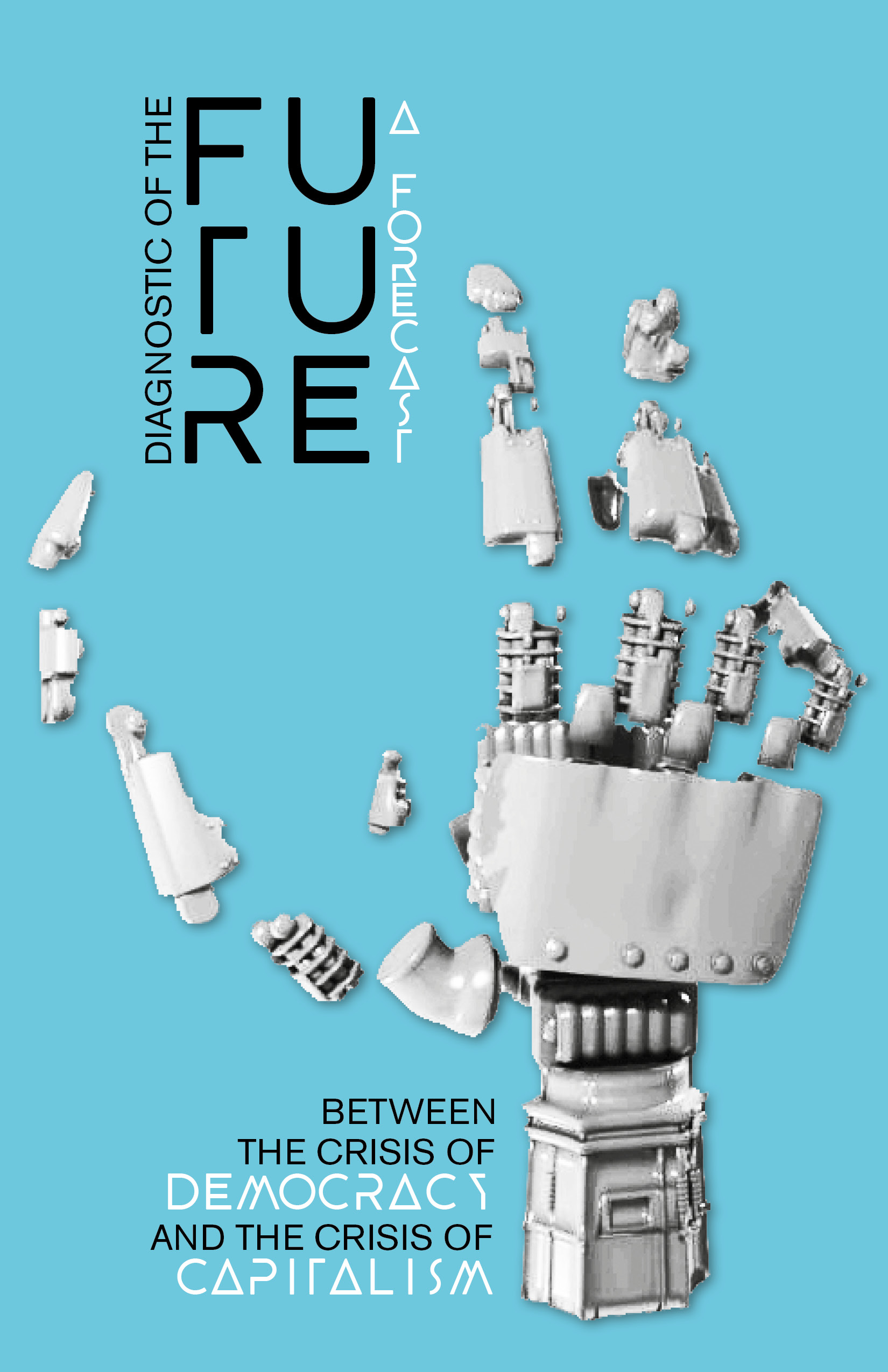
Click the image above to access the PDF.
Anarchy in the USA
We began 2018 with “How Anti-Fascists Won the Battles of Berkeley,” an account of the struggles against fascism in the Bay Area throughout 2017. Throughout this past year, we continued to focus attention on struggles against fascism while emphasizing that anti-fascists must ultimately come to grips with the authoritarian structures of the state.
In the United States, we devoted a fair bit of our energy to opposing the militarization of the border and covering the Occupy ICE camps in Atlanta, Portland, and elsewhere. We also reported on repeated clashes in Portland between anti-fascists and fascists, focusing attention on the police who used potentially lethal force to help fascists recruit.
We engaged with the government shutdown—the last one, not the current one—and the nomination of sexual assaulter Brett Kavanaugh to the Supreme Court. We also grappled with statist narratives in the student movement for gun control.
On the anniversary of the 2017 “Unite the Right” demonstration that brought fascists from around the US to Charlottesville, Virginia, we covered the weekend of demonstrations in Charlottesville and DC.
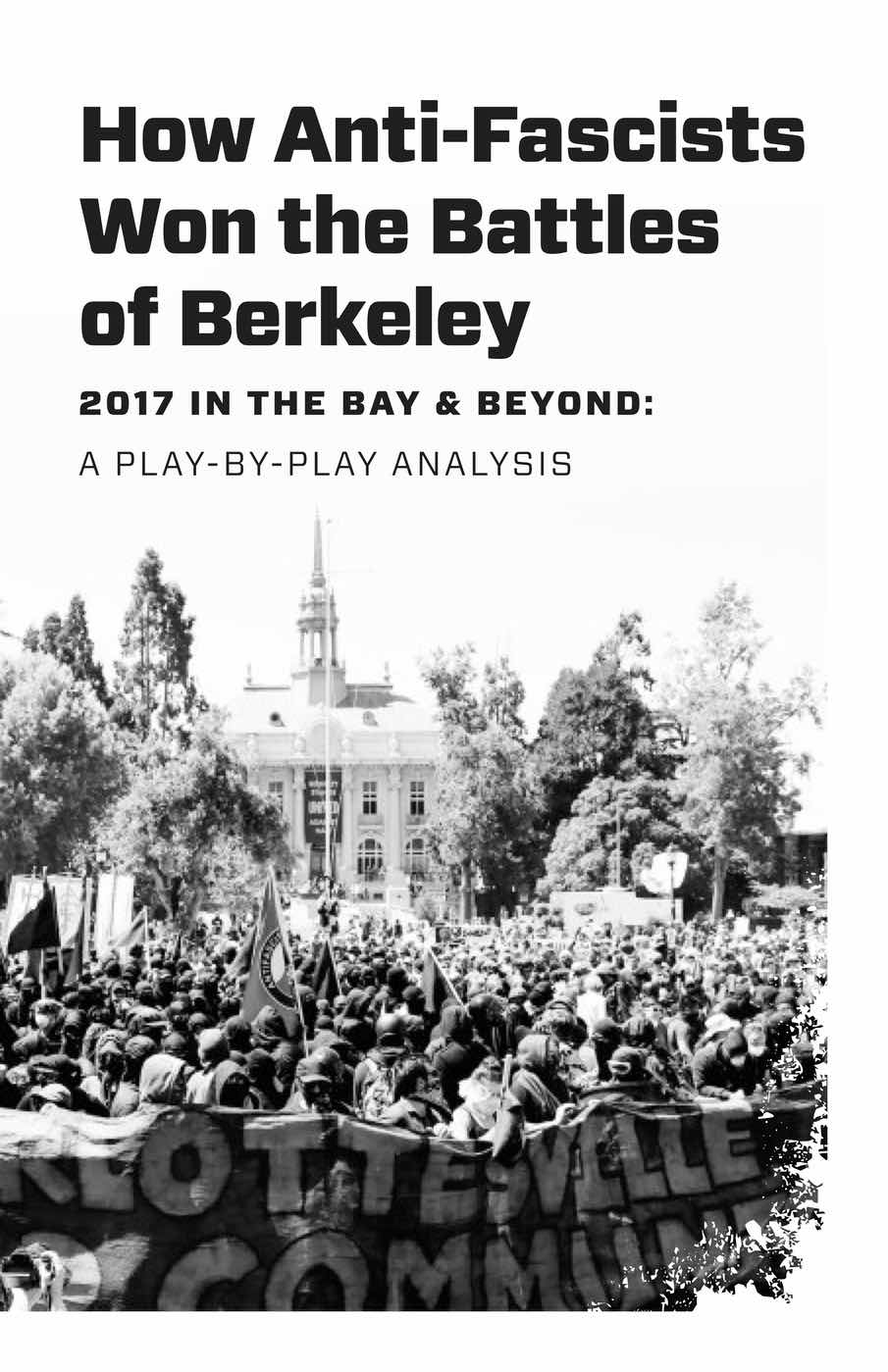
Click the image above to access the PDF.
International Coverage
As part of our mission to offer anarchists the benefit of a global perspective, CrimethInc. operatives throughout our worldwide networks collaborated to bring you firsthand accounts and analysis from four continents in 2018. In addition to individual articles about struggles in Germany, Italy, Greece, and elsewhere, we devoted sustained attention to a few hotspots:
Argentina
Following up our extensive coverage of the 2017 G20 summit in Hamburg, we published a series of reports from Buenos Aires ahead of the 2018 G20 summit.
Brazil
In Brazil, after the wave of reaction that culminated with the impeachment of President Dilma Rousseff of the Workers Party, we studied the ensuing nightmare, charting new patterns of state repression that began under the “left” government and concluding the year with a call to action in English and Portuguese urging people to resist the regime of incoming President Jair Bolsonaro, an explicit proponent of police violence and dictatorship.
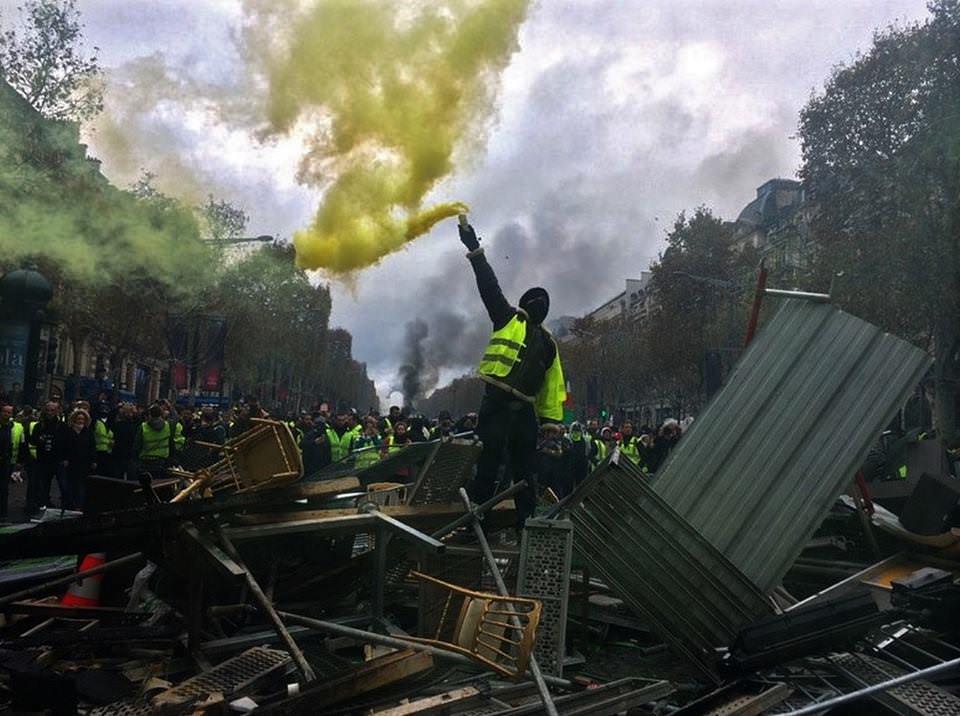
A las barricadas: the yellow vest movement in France.
France
France saw some of its most dramatic upheavals since 1968 last year. In April, in response to the assault on la ZAD, the land occupation in Notre-Dame-des-Landes, we published a series of articles recounting the history of the occupation and exploring the controversies within it from multiple sides. At the same time, after ten years, the verdicts were announced in the Tarnac trial, yet another contemptible failure for intelligence agencies attempting to fabricate “terrorism” cases against accused anarchists.
May Day in Paris followed hot on the heels of the Tarnac verdicts. Then, in the fall, the yellow vest movement broke out across France, pitting anarchists, fascists, and the previously apolitical against each other as well as Macron’s centrist government in a battle to determine what visions of social change will be thinkable in the 21st century:
“We have to establish an anti-nationalist position within anti-government protests and an anti-state position within ecological movements. The yellow vest movement provides an instructive opportunity for us to think about how to strategize in an era of three-sided conflicts that pit us against both nationalists and centrists.”
As the movement intensified, we explored the ways that it functioned as a battleground and published accounts from the high point of the clashes with the state.
https://twitter.com/dailysabah/status/1069333678290075648?lang=en
Nicaragua
To the horror of apologists for “left” governments and the violence with which they respond to popular liberation movements, we worked with anarchists in Nicaragua to cover the Nicaraguan uprising of April 19, tracing it from the first month of clashes and occupations through the brutal repression with which it was crushed and exploring the different currents that competed within it. We oppose US intervention in Latin America just as much as the so-called “anti-imperialists” who make excuses for supporting Nicaraguan police gunning down protesters—the difference is that we also oppose the same oppressive activities when they come from the “left.”
It is possible, instead, to take a principled stand against all forms of state oppression. Those who support oppressive “left” governments in the name of anti-imperialism make it virtually certain that the next wave of social movements will adopt reactionary right-wing politics:
“Leftist statism has enabled Ortega, a one-time revolutionary, to accumulate power and push through neoliberal reforms, provoking the same kind of grassroots revolt that has broken out in many other economic and political contexts including Greece, Turkey, Bosnia, and Brazil. This is not a question of mere international intrigue, but of the legitimate grievances that capitalism and the state are producing on a global scale. If Ortega and the statists who support him are able to monopolize the discourse of the left, there will be no outlet for legitimate popular frustration except right-wing reactionary movements.”
If you find this hard to believe, look at the state of social movements in the former Eastern Bloc. Half a century of oppressive state socialism destroyed the most powerful socialist, communist, and anarchist movements in the world, leaving despair, apathy, and reactionary ferment that linger to this day.
Russia
This year, we published The Russian Counterrevolution, a short book tracing the Bolshevik crackdown on revolutionary currents in Russia and elsewhere around the world, starting before the October Revolution and running up to the treaty between Stalin and Hitler.

Click the image above to download the PDF.
We also reported on the wave of repression that the Russian Federal Security Service (FSB) initiated in 2017—kidnapping anarchists, planting weapons in their vehicles, and torturing them into signing false confessions. This is important not only because of the horrific injustice being done to the targets, but also because it sets a precedent that we might see the other state security services employ to fabricate “terrorist conspiracies” if there is no pushback against this operation in Russia:
“The police of all nations are interlinked in a global network. They exchange tactics, strategies, and training; innovations in one field or region are swiftly passed on to others. It is plain for all to see that governments and the models of policing that they employ have become increasingly authoritarian since the turn of the century. In this context, it’s no stretch to imagine that police in Europe and the US might emulate the Russian model for concocting a conspiracy and forcing their targets to confirm its existence by means of torture.”
This has left young rebels in Russia with precious few options for opposing the FSB and the Putin regime besides suicidal frontal attacks.
We urge people around the world to keep abreast of the situation in Russia and continue to support the arrestees there.
Syria
Tragically, the Syrian Civil War represents the last vestiges of the Arab Spring, illustrating the risks inherent in that model for social change and the limits it reached. It presents us with questions we have to address before the next global wave of liberation struggles. For this reason, and to cut through the web of lies spun by both Donald Trump and supposed “anti-imperialists” like Medea Benjamin, we urge you to read “The Threat to Rojava,” an analysis of the situation in Syria from an anarchist who is currently there facing the threat of a Turkish invasion:
“While authoritarians of various stripes seek to cloud the issue, giving a NATO member a green light to invade Syria is what is ‘pro-war’ and ‘imperialist.’ Speaking as an anarchist, my goal is not to talk about what the US military should do. It is to discuss how US military policy impacts people and how we ought to respond. Anarchists aim to bring about the abolition of every state government and the disbanding of every state military in favor of horizontal forms of voluntary organization; but when we organize in solidarity with targeted populations such as those who are on the receiving end of the violence of ISIS and various state actors in this region, we often run into thorny questions.”
History
In addition to reporting on current events, we also cast light once more on past events—for example, recounting the stories of all the different slaves who attempted to escape from captivity under George Washington, researching the origins of the statues of Christopher Columbus that stand around the US, and revisiting the 1992 LA riots. Following up on our book, The Russian Counterrevolution, we continued to observe the anniversaries of the Bolshevik betrayals of other Russian revolutionaries. Ahead of the second “Unite the Right” demonstratin in Washington, DC, we reviewed some of the history of DC anti-fascism. We also published a short series on political assassination, reflecting on the deeds of Gaetano Bresci and Leon Czolgosz.
Podcasts
This was an extremely busy year for the various CrimethInc. podcast cells, who released four episodes of the Ex-Worker and fully 31 episodes of the Hotwire. Those of us who do not work on the podcast especially appreciated episodes such as the one in which a participant in the ZAD answered an interview while concussion grenades exploded in the background—or the time the hosts attempted to report the news in the form of punk music!
We are currently brainstorming about what new directions we might explore with our podcasts. Feel free to send your input!
Speaking Tours
CrimethInc. operatives offered presentations in at least ten countries in 2018, tabling at book fairs from Boston to the Bay Area and touring the Midwestern US, Germany, Netherlands, Iceland, Sweden, Finland, Denmark, Greece, Serbia, and Czech Republic, among other places.
If you’d like to invite us to send a presenter to speak in your community or participate in an event this year, please contact us!

Zines, Posters, and Journals
We added 23 new zines and 18 new posters to the “tools” section of our website, as well as a brand-new journals subsection. Please print them out and distribute them!
Music
Finally accommodating ourselves to contemporary consumer habits, we began the long process of uploading two decades of CrimethInc. music releases to a Bandcamp page from which you can download all of them for free. Passionate creative and emotive activity has been fundamental to our project from the very beginning, as exemplified by bands like Catharsis, Zegota, the Spectacle, Newborn, and Ümlaut. Even stripped of their original context in the visceral reality of the do-it-yourself punk underground, these recordings still evoke a freer and more authentic way of being in the world. Please be sure to read the lyrics and liner notes as well!
Tech
This year, we continued to develop our analysis of how technologies can both serve and undermine social struggles, publishing an interview with anarchist hacker Phineas Fisher and—somewhat more lightheartedly—employing a machine-learning algorithm to compose a series of post-human directives in the spirit of our classic how-to guide Recipes for Disaster.
Meanwhile, the tech network that runs crimethinc.com prepared a fast-loading Lite Mode version of the site, took the first steps towards localizing the site in German and Spanish, and set up a donation page so readers can help support our efforts.
Translations
This year, many CrimethInc. texts appeared in translation; for example, our book From Democracy to Freedom is now available in German, Portuguese, and Greek, while No Wall They Can Build has just been published in Spanish.
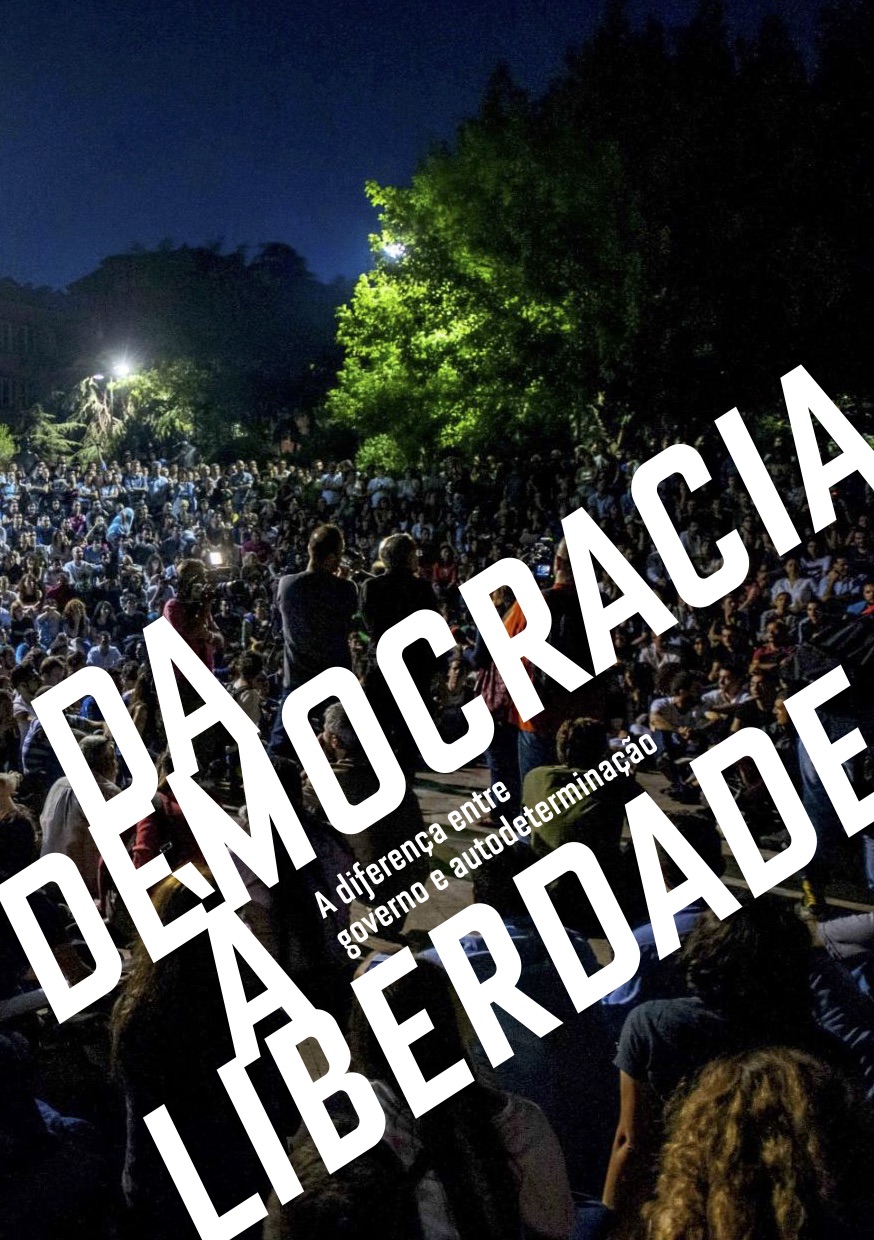
Click the image to download From Democracy to Freedom in Portuguese.
We are working on setting up freestanding versions of crimethinc.com in several different languages, so we can consolidate all of these translations in one place. We welcome assistance with this, if anyone is interested in translating or simply in helping us to track down and polish existing translations.
To Change Everything
Four years ago, we launched To Change Everything, an ambitious effort to bring anarchist ideas to a broader public. In 2018, we finished distributing 150,000 print copies of the text in English, bringing the total number in circulation above 240,000 copies in over 30 languages. We also added a Lithuanian translation, and new web versions in Farsi, Korean, and two different Spanish idioms: one for the Iberian peninsula and Latin America.
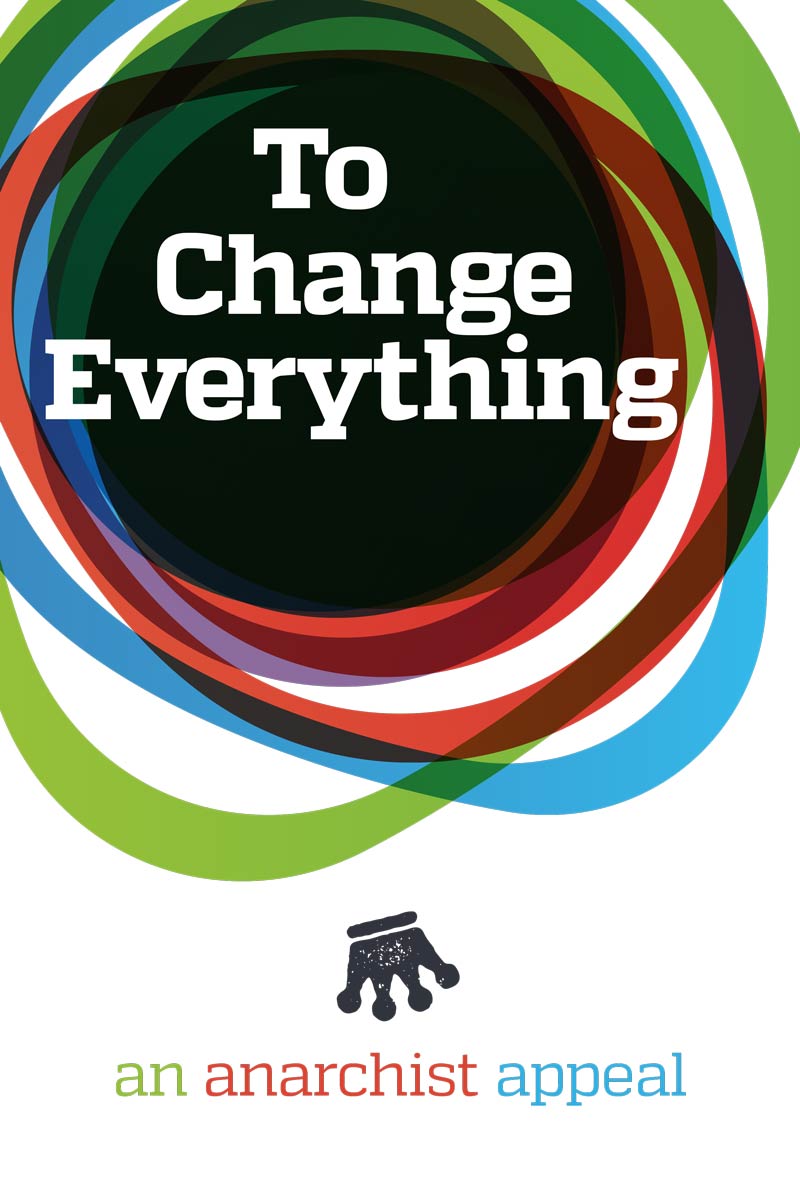
Click the image above for printable PDF versions.
Coming up in 2019
For the third year in a row, we have called for a day of action around January 20. Last year, this day of action focused mostly on solidarity with the J20 defendants; this year, having won that round, we can focus more on building long-term anarchist infrastructure to sustain us through the struggles ahead.

It is not clear yet what 2019 will hold in the US. The third year of a presidential term is usually a big year for social movements in this country. That has been especially true for democratic Presidents, but it could also hold true under Trump. On the other hand, it may be that the deadlock of 2018 simply continues another year.
We ourselves have several exciting new projects planned for 2019, but it’s always best to accomplish things first and speak of them afterwards. Suffice it to say, we will be counting on your help to continue expanding what we do.
Thank you to everyone who has been a part of anarchist organizing and dreaming over the past year. We aspire to do our part alongside you to create a better world in the coming year.








